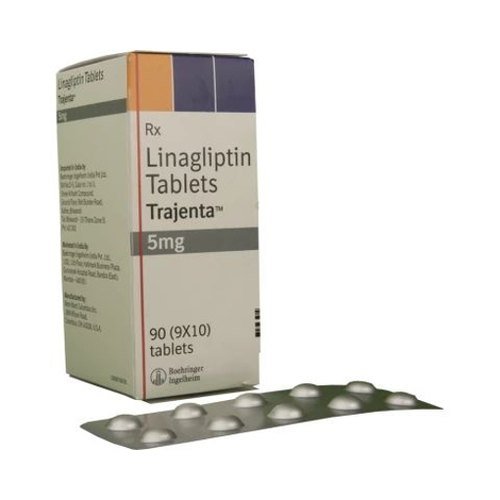CARMELINA subgroup analysis supports long-term cardiovascular and renal safety of linagliptin
February 13, 2020 | Thursday | News
Linagliptin did not increase the risk of adverse cardiovascular events, hospitalization for heart failure or adverse kidney events compared with placebo in older people with type 2 diabetes in a prespecified subgroup analysis of the CARMELINA cardiovascular outcome trial
image credits-IndiaMart
Boehringer Ingelheim have announced the results of a subgroup analysis of the CARMELINA trial which demonstrate that linagliptin did not increase the risk of adverse cardiovascular events or hypoglycemia compared with placebo in older people with type 2 diabetes. The findings have been published in the Diabetes Obesity and Metabolism journal.
Population aging has shifted the epidemiology of diabetes towards older age. Currently, approximately 136 million of the estimated 463 million people with diabetes are aged over 65 years. However, despite the high prevalence, older patients have historically been underrepresented in clinical trials of glucose-lowering drugs.
The recent CARMELINA cardiovascular outcome trial enrolled people aged 18 years and older with no maximum age restriction. The prespecified CARMELINA subgroup analysis evaluated clinical outcomes and adverse events with the main findings grouped into the following predefined age categories: <65, 65 to <75, and ≥75 years.
“This subset analysis shines a spotlight on the older population living with type 2 diabetes. These individuals can be frail, have a high rate of comorbidities and can be on multidrug regimens, all of which present a challenge for their glucose management,” said Waheed Jamal, MD, Corporate Vice President and Head of CardioMetabolic Medicine, Boehringer Ingelheim. “As the older population also has the highest incidence of type 2 diabetes of any age group, this analysis will be invaluable in helping clinicians manage the treatment of this patient group, previously underrepresented in clinical studies.”
Linagliptin did not increase the risk of adverse kidney outcomes, cardiovascular events or hospitalization for heart failure compared with placebo across age groups. The incidence of adverse events, including hypoglycemia, increased with age but was similar with linagliptin and placebo despite HbA1c reduction with linagliptin. Linagliptin improved glycemic control compared with placebo in all age groups.
“Their advanced age, combined with established cardiovascular and/or kidney disease, means the older population of CARMELINA was comprised of high-risk individuals with type 2 diabetes,” continued Dr. Jamal. “The results should reassure healthcare professionals that linagliptin is suitable for a wide patient population to improve glycemic control whilst ensuring cardiovascular and ren









